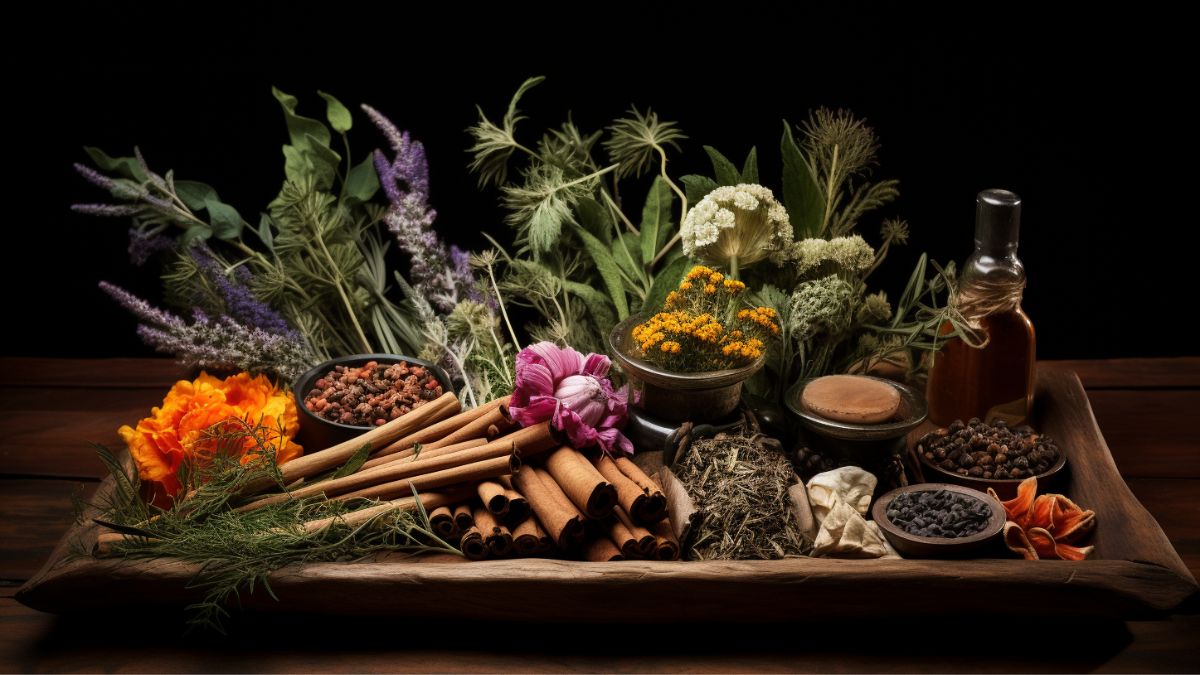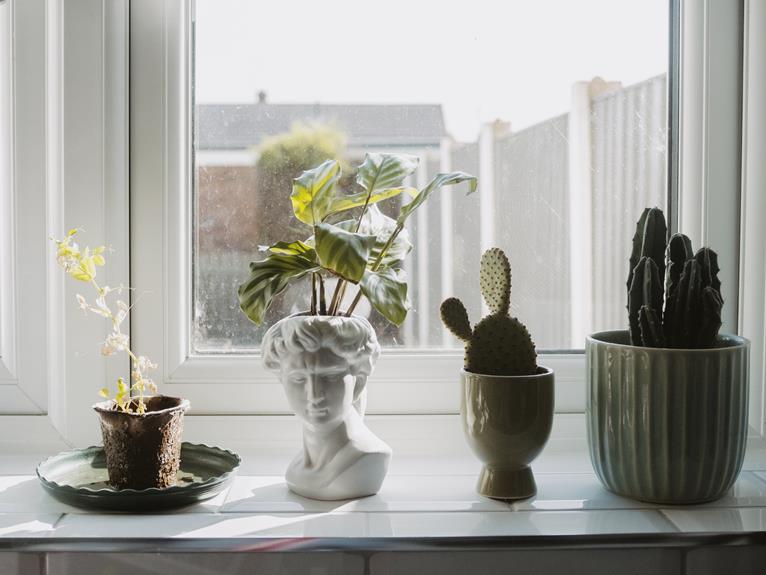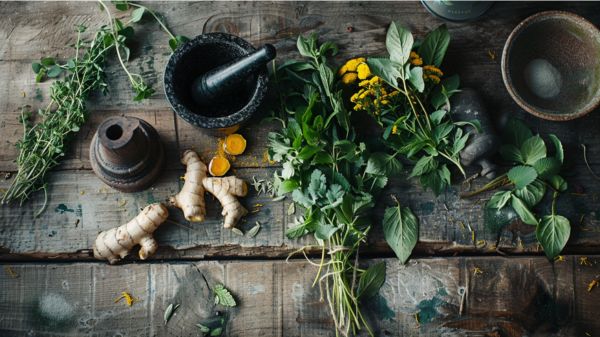Five Essential Safety Precautions for Medicinal Plants Usage
Are you ready to embark on a journey through the world of medicinal plants? Like a wise guide leading you through a dense forest, this article will provide you with essential safety precautions for their usage.
By understanding potential allergic reactions, administering proper dosage, identifying toxic plants, consulting with a healthcare professional, and monitoring for adverse side effects, you will navigate this terrain with confidence and ensure your well-being.
Let’s embark on this adventure together, ensuring your belonging in the realm of medicinal plants.
Understanding Potential Allergic Reactions
When using medicinal plants, it’s important to be aware of potential allergic reactions. Recognizing symptoms of an allergic reaction is crucial for prompt and appropriate emergency treatment. Allergic reactions can vary in severity, ranging from mild symptoms such as itching, rash, and sneezing, to more severe reactions like difficulty breathing, swelling, and anaphylaxis.
It’s essential to pay attention to any changes in your body after using a medicinal plant and seek immediate medical attention if you experience any concerning symptoms. Emergency treatment for allergic reactions may include the administration of antihistamines, epinephrine, and corticosteroids to alleviate symptoms and prevent further complications.
Proper Dosage and Administration
To ensure safe and effective usage of medicinal plants, it’s essential that you carefully consider the proper dosage and administration methods. When it comes to alternative remedies, it’s important to remember that just because something is natural, it doesn’t mean it’s risk-free. Self-medication with medicinal plants can pose certain risks if not done correctly.
Here are some key points to keep in mind:
- Start with a low dosage: Begin with a small amount and gradually increase if necessary. It’s better to start conservatively and observe the effects before adjusting the dosage.
- Follow recommended guidelines: Always follow the dosage instructions provided by reputable sources. These guidelines are based on scientific research and ensure safe usage.
- Seek professional advice: If you’re unsure about the proper dosage or administration methods, consult a qualified healthcare professional who’s knowledge of medicinal plants. They can provide personalized advice based on your specific needs and health condition.
Identifying and Avoiding Toxic Plants
To ensure your safety when using medicinal plants, it’s crucial to familiarize yourself with the identification and avoidance of toxic plants.
Plant toxicity symptoms can vary depending on the specific plant, but common signs include skin irritation, nausea, vomiting, and even organ damage in severe cases. It’s important to note that not all toxic plants are harmful when used in appropriate doses, but it’s best to err on the side of caution.
Safe handling practices are essential when dealing with medicinal plants. Always wear gloves when handling plants, especially if you’re unsure of their toxicity. Additionally, make sure to properly wash your hands after handling any plant material to avoid accidental ingestion or contact with sensitive areas such as the eyes or mouth.
Consulting With a Healthcare Professional
Before using medicinal plants, it’s essential to consult with a healthcare professional to ensure your safety and maximize the potential benefits. Here are three reasons why consulting with a healthcare professional is important when considering alternative treatments:
- Expertise: Healthcare professionals have the knowledge and expertise to assess the risks and benefits of medicinal plants based on your specific health condition and medical history. They can provide personalized recommendations and guidance to ensure that the chosen plant is safe and effective for you.
- Drug Interactions: Certain medicinal plants may interact with medications you’re currently taking, potentially causing harmful effects. A healthcare professional can evaluate potential interactions and adjust your treatment plan accordingly to prevent any adverse reactions.
- Monitoring and Follow-up: Regular consultations with a healthcare professional allow for proper monitoring of your progress and any potential side effects. They can provide ongoing support, answer your questions, and make adjustments to your treatment if necessary, ensuring optimal results.
Monitoring for Adverse Side Effects
During your usage of medicinal plants, it’s important to monitor for any adverse side effects. Regular check-ups are crucial to ensure that your body is responding well to the medicinal plants and that there are no unexpected reactions.
These check-ups will allow healthcare professionals to assess your overall health and identify any potential issues that may arise from the usage of medicinal plants. Additionally, it’s essential to report any unusual symptoms that you may experience during the usage of these plants.
This information will help healthcare professionals to monitor your progress and make any necessary adjustments to your treatment plan. By actively monitoring for adverse side effects and promptly reporting any unusual symptoms, you can ensure your safety and well-being while using medicinal plants.
Conclusion
When it comes to using medicinal plants, it’s crucial to prioritize safety measures. By understanding potential allergic reactions, following proper dosage guidelines, identifying and avoiding toxic plants, consulting with healthcare professionals, and monitoring for adverse side effects, individuals can enhance their experience and minimize risks.
Remember, just as a stitch in time saves nine, taking these precautions can prevent future complications and ensure the safe and effective use of medicinal plants.






